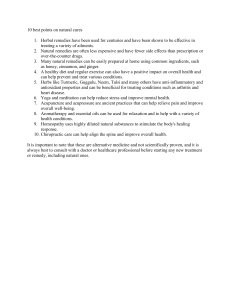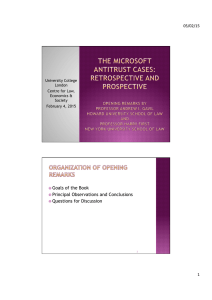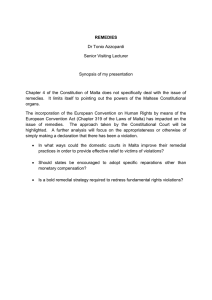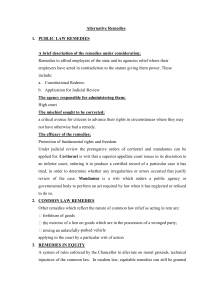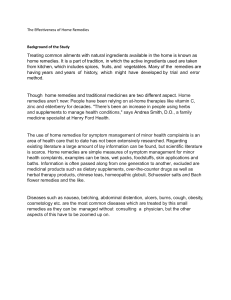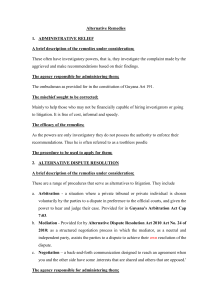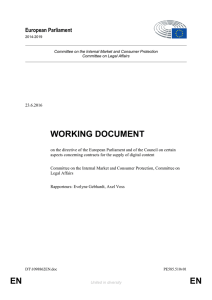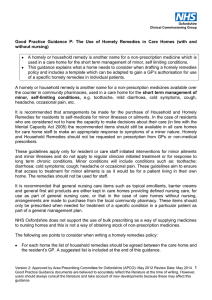Chemical Industry Overview: Definition, Problems, and Remedies
advertisement
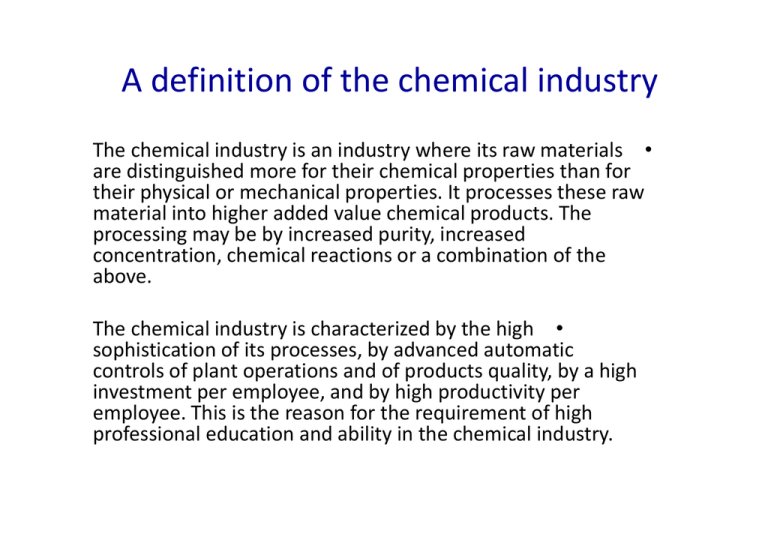
A definition of the chemical industry The chemical industry is an industry where its raw materials • are distinguished more for their chemical properties than for their physical or mechanical properties. It processes these raw material into higher added value chemical products. The processing may be by increased purity, increased concentration, chemical reactions or a combination of the above. The chemical industry is characterized by the high • sophistication of its processes, by advanced automatic controls of plant operations and of products quality, by a high investment per employee, and by high productivity per employee. This is the reason for the requirement of high professional education and ability in the chemical industry. The fast growing consumers markets The global chemical industry Changing And changing The global chemical industry in 2015 In the past decade the map of the global industry has changed considerably. Old company names: Rhone Poulenc, Elf, Nobel, Union Carbide, Huls ,Hoechst, Stauffer,Diamond Shamrock,Texas Gulf,Big Three Industries,National Distillers, Pennwalt have disappeared and were replaced by names picked by public relations managers: Novartis, Clariant, Aventis, ChemFirst, Astra Zeneca, Wyeth, Syngenta, Hexion, Noveon, Senomix, Lanxess, Yara. Only two of the many large companies whose main business were chemicals remain: BASF & Dow. The Problems of the chemical industry Low profitability in 8 out of 10 years in each • decade. Ownership of company stocks by pension • groups, and short term view by boards. Motivation of managers to get larger bonuses. • The remedies tried - 1 1. Cutting costs, restructuring 2. Staff reductions 3. Strengthening existing production. Economy of scale. Operating and managerial efforts, Technical innovations . 4. Reengineering Rethinking and radical redesign of business processes 5. Move into higher value products (specialties) 6. Diversification Spreading the risks and balancing seasonally sensitive products. 7. Globalization - Foreign trade and production The remedies tried - 2 8. Divestitures, Divisions from many companies were divested. 9. Demerger. Splitting the existing organization into separate entities. 10. Leveraged Buy-outs The buyers of plants under this scheme were employees and banks. 11. Mergers and acquisitions, alliances and joint ventures. Selling and Buying Some of the selling, buying and reorganizations were for the purpose market share in specific businesses, or to get of controlling a larger rid of businesses with a small market share. Many of the sales were in order to appease the stock market for poor performance of the companies. The stock market only looks at the quarterly reports or the gossip columns.. Each time a company is mentioned the value of its shares jumps in either direction. Many of the sales were by managers who wanted the golden parachutes awarded by the shareholders for making an apparently good exit. • The remedies tried - 3 12. Manipulating stocks Buying own companies shares. 13. Other managerial remedies: A multitude of new 3 or 4 letter subjects, invented by business schools: Examples of key gobbly terms popular in the chemical industry in the nineties: SDP, PACE, ME, QFD, PS/MST, BPS, FE, SCM, HPWS, IWCT, CFM, TQM, PQM/PC. 13. Other managerial remedies, continued: Examples of key gobbly terms popular in the chemical industry in this century: Sustainable Development, Sustainable growth, Six Sigma, EPR = Extended Product responsibility, DPR = Disaster Recovery Planning, TRM - Time Based Management. The major economic effects Chemicals prices • Crude Oil cost • Innovation Identifying rising markets • Identifying future technologies • Entry Barriers to new products Technology maturation Market saturation Globalization Environmental requirements Short term view
